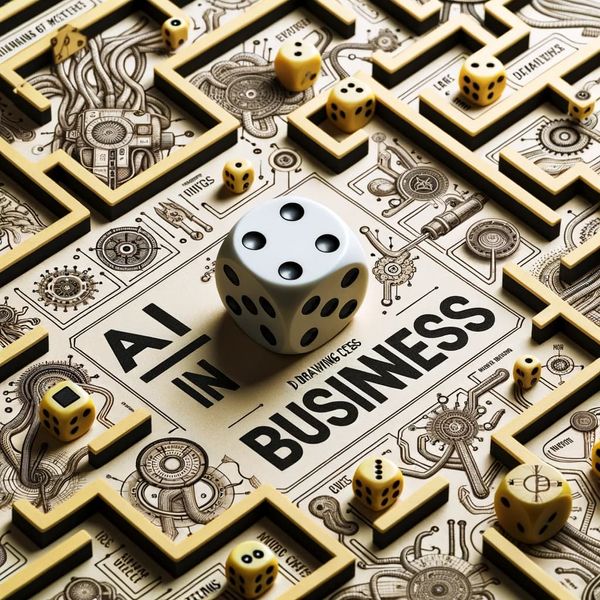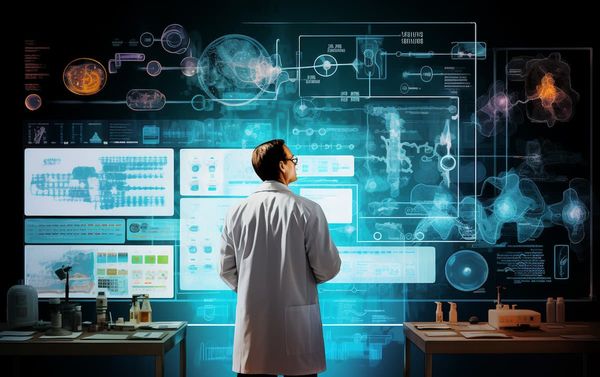AI and automation are set to disrupt the job market on a massive scale in the coming years.
Advances in artificial intelligence and robotics will eliminate many jobs through automation, especially routine tasks, while also creating new types of work. This will require a rethinking of education and training programs to prepare workers for the jobs of the future.
AI and automation will lead to job losses in many industries
- Jobs involving repetitive, routine tasks are most at risk of being automated away. Any jobs that follow a clear set of rules and can have those rules codified are prime candidates for being taken over by AI and robots. For example, manufacturing and assembly line jobs are already seeing automation increase productivity and reduce the need for human workers. Other routine jobs like transportation, food service, and administrative office work are also highly susceptible to being automated by AI.
- Automation increases productivity and reduces the need for human labour. As AI and robotics become more advanced and affordable, many companies are finding that machines can perform routine physical and cognitive tasks more quickly, accurately, and cheaply than humans. This drives up productivity but also makes many human roles redundant. Warehouse fulfilment centres are increasingly using robot pickers and packers, eliminating the need to employ as many warehouse workers.
- Even white-collar office jobs are at risk from improvements in AI. Functions like data processing, bookkeeping, payroll management and other repetitive clerical work could be automated using AI software. Jobs that involve information processing according to set procedures are likely to be digitized in the coming years with advancements in machine learning algorithms. This puts office administrative roles most at risk.
However, new jobs will also be created
- There will be an increased need for developers, engineers, and technicians to build, maintain, and improve AI systems. As companies adopt more AI technology, demand will grow for people with technical skills to work closely with artificial intelligence.
- New products and services enabled by AI advances will lead to new economic opportunities and roles. For example, the growth of virtual assistants, self-driving vehicles, robotics, and AI software will create new jobs servicing these technologies. Roles that are unpredictable and require dexterity, flexibility and real-world knowledge are harder to automate.
- Jobs requiring creative, social and emotional skills that AI lacks will be in greater demand. Teachers, healthcare workers, artists, therapists, entrepreneurs and other roles involving relatability, imagination, and empathy will provide services AI cannot replicate. While AI can be creative, it lacks human context.
- As routine tasks are automated, key human skills like critical thinking, creativity, empathy, leadership, and collaboration will become more valued by employers. Workers who can adapt to changing needs and learn new skills will have the most job security.
Major changes needed in education and training
- Education will need to focus more on STEM skills to prepare people to work with AI and advanced technologies. Science, technology, engineering and math will be critical for many of the new jobs in AI research, programming, data science, robotics and other technical fields.
- Schools should also work to foster creativity, emotional intelligence, communication skills and other uniquely human capabilities. These skills will complement technology and remain in high demand.
- Lifelong learning and retraining will become necessary as jobs rapidly evolve alongside advancing technology. Curriculums will need to teach adaptability and the ability to learn new skills quickly.
- Government funding for retraining programs can help displaced workers transition to new careers. Initiatives like apprenticeships, vocational schools, and tuition support can make retraining more accessible.
- Education systems will need to be reformed to develop the blend of technical, creative and soft skills that will be most valuable in a workplace transformed by AI. The jobs of the future will require human-machine collaboration.
Policies required to aid transition
- Universal basic income could help support workers displaced by automation. UBI would provide a financial cushion as people transition between jobs or retrain for new careers. It may become essential as automation increases unemployment and economic inequality.
- Labour laws will need updating to adapt to a changing workforce. Issues like the classification of gig workers, workplace safety standards for human-robot collaboration, and unemployment protections in an AI economy will require new regulations.
- Education and retraining initiatives need to be funded at the federal and state levels. The government has a role to play in ensuring workers have the skills needed to complement AI rather than be replaced by it.
- Tax incentives can encourage companies to retrain existing employees rather than lay them off when bringing in automation. This eases the impact on workers.
- Policies should focus on empowering human-AI collaboration and augmenting workers with technology rather than simply replacing them. The goal should be improving the quality of work rather than just efficiency.
- As technology shapes the future of work, policies must evolve to support workers through the disruption and ensure prosperity is shared.
Discussion: Generative AI in Business and Work
Generative AI models like GPT-3 are demonstrating new capabilities that can outperform humans in certain specialized tasks. These models can generate coherent, human-like text and content based on a few prompt words or sentences.
New startups and platforms are emerging that allow anyone to leverage these AI technologies without needing coding skills. This acceleration of access is enabling rapid experimentation and adoption across many industries.
The banking and finance sector is already undergoing integration with AI. Generative models can analyze troves of data, generate reports, and even communicate with customers via chatbots. This has implications for many roles and workflows.
As more powerful models emerge, like the recently announced GPT-4, even more possibilities open up for creative tasks like data analysis, content writing, and product ideation.
While promising, the rise of generative AI does raise concerns around impacts on employment and skills. As these systems master new capabilities, they may automate or transform roles previously done by people. Proactive policies and programs to re-skill workers will be needed in the years ahead.
Overall, generative AI represents a transformative general-purpose technology. With responsible development and deployment, it can augment human abilities and enhance business innovation. But adaptation to its rapid emergence will also be required across industries and society.
A Note on Universal Basic Income
Universal basic income has been proposed as a potential solution to technological unemployment and income inequality. However, there are good-faith concerns about its feasibility and unintended consequences that should be considered.
Some argue UBI would be prohibitively expensive to implement nationwide. Providing every citizen with a livable stipend would indeed have massive costs. UBI would likely require tax increases and spending cuts to other programs. There are open questions about how it would be funded sustainably.
There are also worries that UBI could reduce incentives to work. If everyone receives unconditional income, labour force participation may decline. This could reduce economic output and exacerbate skills shortages in essential roles. Some level of work likely contributes to human dignity and meaning as well.
Additionally, UBI may not be optimally targeted to help the poor. Spreading funds to all citizens dilutes its anti-poverty effects. Existing welfare programs tailored to low-income groups could see reduced funding yet provide more benefits per dollar.
That said, UBI has some merits. Technological disruption may necessitate new social contracts and safety nets. UBI's universality could reduce stigma and administrative overhead vs. means-tested welfare. With the right policy design, some of its drawbacks could potentially be mitigated.
Alternatives like subsidizing utilities, healthcare, and education for low-income groups could be more affordable and targeted ways to provide economic security. We likely need an array of policy options and ideas to make progress on inequality and fair opportunities in the digital age. UBI alone may not be a silver bullet solution.
Reference
This discussion was inspired by the following podcast with Emad Mostaque:
Key Bookmarks
- 00:14 🌐 The next 2 to 10 years may bring job losses, fake news, and AI-enabled terrorism, causing concern for society.
- 01:24 🌍 Technology should be used deliberately to create new jobs and democratize opportunities, especially as the West faces economic challenges.
- 02:35 📚 Society needs discussions on meaning, objectives, and stories to navigate the changing landscape of technology.
- 03:45 💰 Universal Basic Income (UBI) might become necessary to support individuals impacted by automation, but finding purpose remains a challenge.
- 05:06 🌟 AI can empower underprivileged communities and democratize access to expertise, potentially transforming regions like Africa.
- 06:15 🌍 Technology can help coordinate resources and knowledge to uplift every person on Earth, but it requires guidance and action.
- 07:09 🚀 Technology is already reshaping society, and its acceleration in the coming decade will bring significant changes for future generations.








